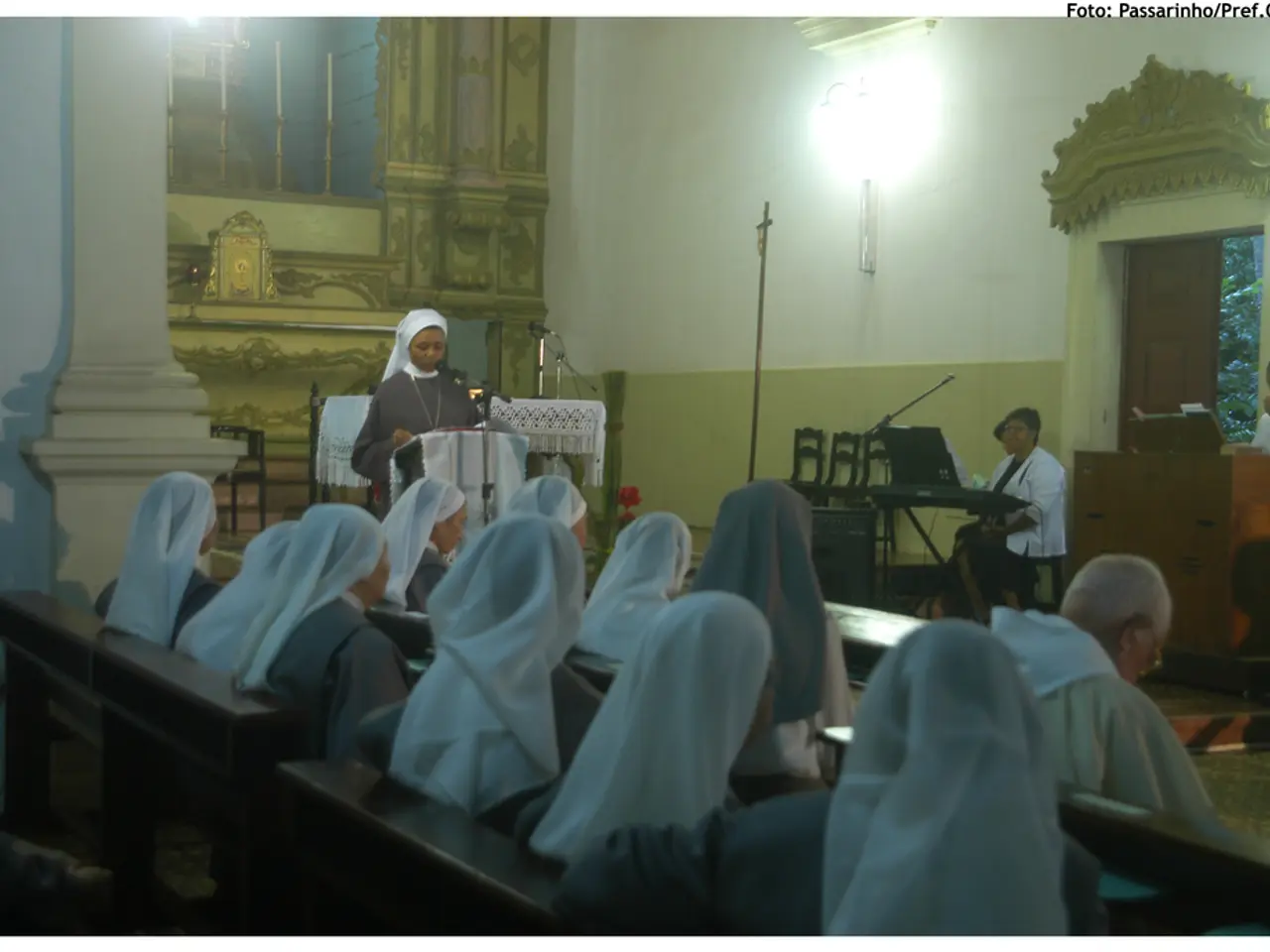Conservative politician continues to express objections towards Brosius-Gersdorf - CDU Members of European Parliament express concerns towards Brosius-Gersdorf
The election of Frauke Brosius-Gersdorf, a law professor from the University of Potsdam and an SPD candidate, to Germany’s Federal Constitutional Court has been postponed following a political dispute sparked by the CDU/CSU parliamentary group.
**Background and Allegations**
The CDU/CSU withdrew their support for Brosius-Gersdorf's candidacy at the last minute, citing concerns over possible plagiarism in her academic work. However, an expert opinion did not confirm these allegations. The CDU/CSU had previously agreed to her candidacy in the relevant parliamentary committee. The CDU/CSU's objections to Brosius-Gersdorf's candidacy, on both ethical and ideological grounds, were decisive in derailing the appointment.
**Political Opposition**
The CDU/CSU had previously voiced concerns about Brosius-Gersdorf’s progressive views, particularly on abortion, and her support for compulsory COVID-19 vaccinations, making her a contentious choice. The last-minute withdrawal caused the election of all three proposed constitutional court judges—two from the SPD and one from the CDU/CSU—to be postponed.
**Divisions in the Coalition**
The SPD and Greens strongly criticized the CDU/CSU’s move, with the Greens proposing to delay all three appointments in response. The debate also drew notable opposition from German Catholic leaders and laypeople.
**Current Status**
The appointment process remains stalled as of mid-July 2025. The political fallout has exposed deep divisions within the coalition, especially between the CDU/CSU and its SPD and Green partners.
**The Role of Christoph Ploß (CDU) and Britta Haßelmann (Green Party)**
Christoph Ploß, a senior CDU MP, was involved in the decision to pull support for Brosius-Gersdorf. Ploß stated that he would not have voted for Brosius-Gersdorf's appointment as a constitutional judge. Britta Haßelmann, leader of the Green faction in the Bundestag, led the Greens’ strong objections to the CDU/CSU’s actions, proposing to postpone all three judgeships to signal their displeasure with what they saw as procedural manipulation.
**Summary Table: Key Actors and Their Positions**
| Actor/Party | Position on Brosius-Gersdorf | Actions Taken | Motivation | |------------------------|------------------------------|--------------------------------------------------|-----------------------------------------------| | CDU/CSU (Ploß) | Opposed | Pulled support, cited plagiarism, delayed vote | Ethical, ideological, and procedural concerns | | SPD | Supported | Criticized CDU/CSU’s move, defended candidate | Coalition solidarity, candidate’s credentials | | Greens (Haßelmann) | Criticized process | Proposed delaying all appointments | Defense of parliament’s integrity | | Catholic Bishops | Opposed (on abortion) | Public statements on human dignity | Moral/religious opposition to abortion views |
**Conclusion**
The controversy over Frauke Brosius-Gersdorf’s appointment to Germany’s Federal Constitutional Court has brought together ethical, ideological, and procedural disputes, resulting in an unprecedented parliamentary standoff. The CDU/CSU’s withdrawal of support—ostensibly over plagiarism but also driven by ideological opposition—has left the process in limbo, with the SPD and Greens decrying the move as a breach of trust and a threat to judicial independence. The situation remains unresolved, with significant implications for both the coalition government and the credibility of Germany’s highest court.
The Commission is also being asked to submit a proposal for a directive on the protection of the environment as part of the ongoing political dispute, as policies surrounding environmental conservation are being debated under the umbrella of general news. The controversy over Frauke Brosius-Gersdorf’s appointment to Germany’s Federal Constitutional Court, where politics interfered with her appointment process, has further illuminated the role of policy-and-legislation in shaping the country's political landscape.








